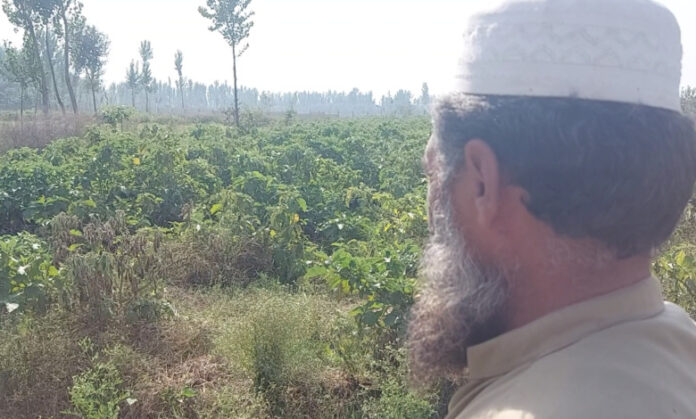
Khalida Niaz
Usman Khan, a farmer in Peshawar’s Jhagra area, expresses concerns about declining crop yields due to the impact of climate change. This sentiment is echoed by many farmers facing challenges such as delayed rains and excessive heat affecting crop productivity.
Notably, the Agriculture Department of Khyber Pakhtunkhwa (KP) reports a significant decrease in wheat production, attributing the damage to rains and hail. Approximately 1 million metric tons of wheat were affected out of an expected 1.4 million metric tons.
In response to these challenges, the Agriculture Department has established a Geographic Information System (GIS) Laboratory in Crop Reporting Services. Uzair Ahmed, the lab in charge, emphasizes the lab’s role in monitoring climate change and proactively informing landowners about protective measures for their crops.
Also Read: Revolutionizing Water Access: Mohmand District’s Game-Changing Supply Scheme
The GIS lab evaluates the entire province through satellite technology, providing detailed reports to the provincial and federal governments about crop cultivation in different districts. The lab also assesses crop damage caused by climate change, utilizing satellite observations to inform district officers who visit affected areas and communicate with farmers.
The lab’s daily monitoring includes rainfall, temperature, and humidity, with the gathered information transmitted to the Agriculture Extension for dissemination to farmers. Shawana Jalil Khan, an Agriculture Department officer, emphasizes the benefits of modern technology in improving crops and enhancing farmers’ prosperity.
Explaining the utility of GIS technology, Shawana Jalil Khan notes its capacity to provide geographical information remotely. For instance, farmers can receive guidance on fertilizer application based on specific soil conditions, reducing unnecessary fertilizer use and benefiting both farmers and the environment.
With Pakistan ranking seventh among countries affected by climate change, experts like Dr. Akmal Khan highlight its impact on agriculture, altering crop life cycles and farming practices. Dr. Akmal underscores the need to transition farmers to modern and sustainable agricultural methods to prevent malnutrition in the face of ongoing climate challenges.







